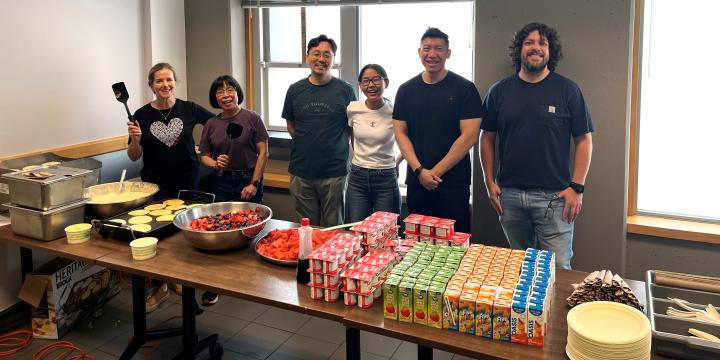
September 9th is International Fetal Alcohol Spectrum Disorder (FASD) Awareness Day. In Canada, it’s estimated that each year more than 3,000 babies are born with FASD and about 300,000 people are currently living with it. The developmental disabilities that result from FASD are preventable by avoiding alcohol during pregnancy. There is no amount of alcohol that's known to be safe to consume during gestation - an unborn baby who is exposed to alcohol is at risk of FASD.
Among other symptoms, people with FASD have a physical brain-based disability that prevents them from adapting to the environment as fast as others do. Since environments have various components that can individually affect people with FASD, identifying and understanding them can help us learn and make adjustments to accommodate FASD-diagnosed individuals. Here are some of these environment components and potential changes:
The Mental and Social Environment
It’s important to understand that the norms, values and standards of our society don’t always apply to every individual. Like many people, children and adults with FASD can’t carry out all the expectations of the environment in which they live, and they shouldn’t be expected to apply the same standards to their lifestyles either. For example, interactions with new people, becoming independent at a certain age and other societal norms that are followed through by us might not be within the abilities of individuals with FASD. They may need more time to become independent; they may prefer to meet fewer new people at a time and overall require more space and understanding to grow and adapt. We need to understand that our expectations may be too unrealistic for FASD-diagnosed people.
The Physical Environment
The organization of the physical structure of a space, furnishings and equipment dictate activity areas and traffic patterns. Some of the needs of people with FASD can be met through arranging their physical surroundings in a way that helps them follow certain patterns. For example, organizing the space with colours, materials and enough room to move around to encourage dynamic behaviour as well as creating calming spaces for resting and concentrating. By making these adjustments in the physical environment, they can be productive but still reminded to take some time to recharge and prevent exhaustion.
Schedules and Routines
People with FASD prefer to have daily routines and standardized schedules which help them adapt to the activities and prepare for them; whereas unpredictable plans can be stressful for them. They also need to be given enough time to complete tasks instead of being rushed and expected to work in fast-paced environments. Having breaks in between helps them relax and continue their work without being overwhelmed.
Rules and Expectations
Instead of expecting individuals with FASD to fully understand and remember the rules within a family/group, it’s better to minimize the conversations that may be misleading to them and cause confusion in terms of what an acceptable behaviour or topic of discussion is. For example, if there is a private family matter to discuss, it’s helpful to have that discussion in the absence of the individual so that they don’t overshare the issues discussed with others.
Verbal Communication
People with FASD may require us to slow down while talking, use fewer words and more straightforward definitions to follow a conversation or instructions. Comprehension of too many words can be potentially challenging for them and lead to confusion.
Family, Friends and Community
People connected to FASD individuals have a vital role in their lives. They can support these individuals by adapting their environments to their needs. The communities can change the way people think about individuals with FASD as well as the way these individuals perceive themselves and others.
FASD and the YWCA
The YWCA Crabtree Corner Community Resource Centre offers very specific programming for FASD, with FASD Key Support workers offering one-to-one support, educational workshops and also intergenerational grandparents groups for family members of children with FASD in Vancouver’s Downtown Eastside.
Wanda Pelletier is the coordinator of our FASD Key Worker Program. Her team assists in developing strategies to support children and youth at various developmental stages, in addition to advocacy and outreach. They also work one-to-one with families to determine the best way to support them.
Wanda and her team were in high demand in 2018, but they were able to eliminate the waitlist for families requesting services - a great relief for those in need of help. Last year 125 children and 71 families received holistic support through this program.
From transitional housing for expecting and new mothers with substance use issues to child care, parenting programs, a community kitchen and violence prevention, YWCA Crabtree Corner meets women and families where they’re at, providing them with the support to move forward in life.
If you would like to take a tour at Crabtree Corner, please contact Kathy Lilyholm at 604 895 5851 | klilyholm@ywcavan.org.

